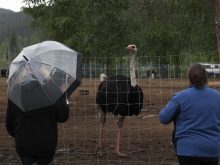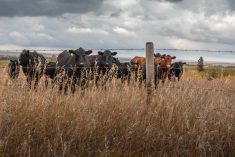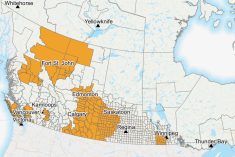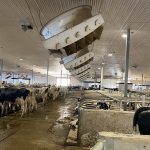A new provincial rural economic development strategy for British Columbia includes extra money for livestock and invasive plant programs, among them a new rebate plan for livestock tag readers.
The province on Friday released “Building on our Rural Advantages: B.C.’s Rural Economic Development Strategy,” a document laying out investments expected to support up to 26,600 direct and indirect jobs, offering an overall impact of $2.8 billion to provincial gross domestic product.
Read Also
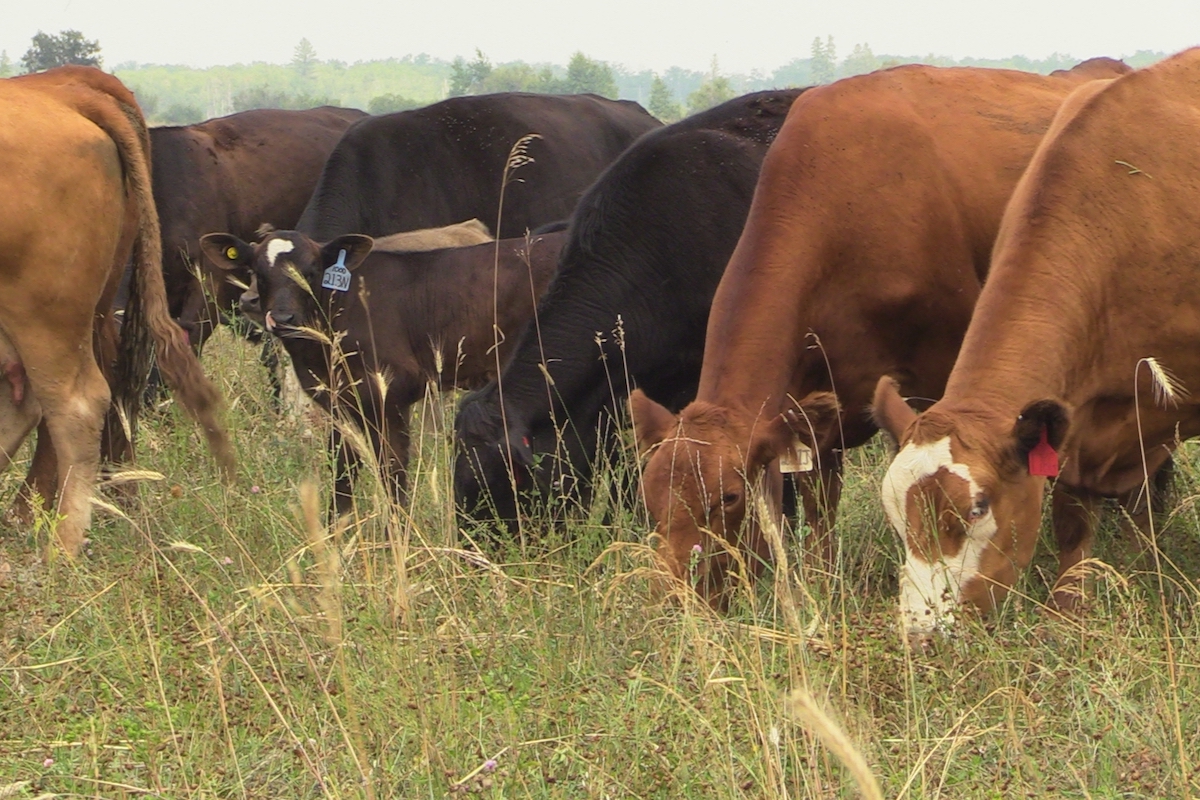
Beef industry weighs in on AAFC research cuts
The Canadian Cattle Association and Beef Cattle Research Council said cuts to federal research centres and programs will have long-term debilitating consequences for the beef industry.
The strategy, developed by the province’s Rural Advisory Council, includes a new Livestock Tag Reader Rebate Program, offering rebates of up to $3,500.
Details on the plan weren’t immediately available Friday but the strategy said the program will allow “small” ranchers to buy equipment to “enhance food safety and food traceability protocols.”
The strategy also budgets another $4 million provincewide investment over two years in the Provincial Livestock Fencing Program “to help B.C. ranchers and farmers keep their livestock safe and businesses thriving.”
The program, first set up in 2010 and administered by the B.C. Cattlemen’s Association, was most recently extended in 2015 with $2 million per year to the end of 2017. That $4 million extension in 2015 was expected to set up another 250 km of fencing.
The strategy also pledges a $10 million lump sum in 2017-18 to support “new land management initiatives” across the province, including fencing repairs on Crown rangeland, along with multi-year “invasive plant management projects.”
The funding will be allotted in partnerships with regional weed committees, the B.C. Cattlemen’s Association and Ducks Unlimited, among others, the province said.
Those projects, the province said, “will create local jobs and address an estimated $50 million in annual crop loss in B.C. caused by invasive plants.”
“B.C.’s rural economies and natural resource industries are at the backbone of our economy, and are shouldering the risk posed by the global downturn in commodity prices,” Premier Christy Clark said in a release.
“These challenges require immediate action to support our rural communities and a long-term plan that builds on our rural advantages to create jobs and diversify our economy.”
Other investments laid out in the strategy include:
- $500,000 for internet connections in “the most remote areas of the province” through the B.C. Broadband Satellite Initiative;
- phasing out provincial sales tax on commercial electricity purchases, reducing it to 3.5 per cent in October 2017 and eliminating it by April 2019, to “improve business competitiveness and economic performance” for industries including commercial farming;
- over $480,000 in 2016-17 through the Canada-B.C. Agri-Innovation Program for rural B.C. communities, to “accelerate the pace of innovation in B.C.’s agrifoods sector;”
- $600,000 across 12 communities through the New Entrant Strategy to “support young farmers and expand opportunities for them to access land;” and
- support for the B.C. Hazelnut Growers Association’s “multi-year effort” to rebuild B.C.’s hazelnut industry, including a partnership with the University of the Fraser Valley to develop value-added processing equipment and “marketing to encourage more people to establish orchards.”
The province also pledges a “significant $40 million investment” to extend high-speed internet access to rural and remote B.C. communities, and to extend its $25 million Rural Dividend Fund for a fourth year to “support the strength and sustainability of small rural communities.” — AGCanada.com Network




